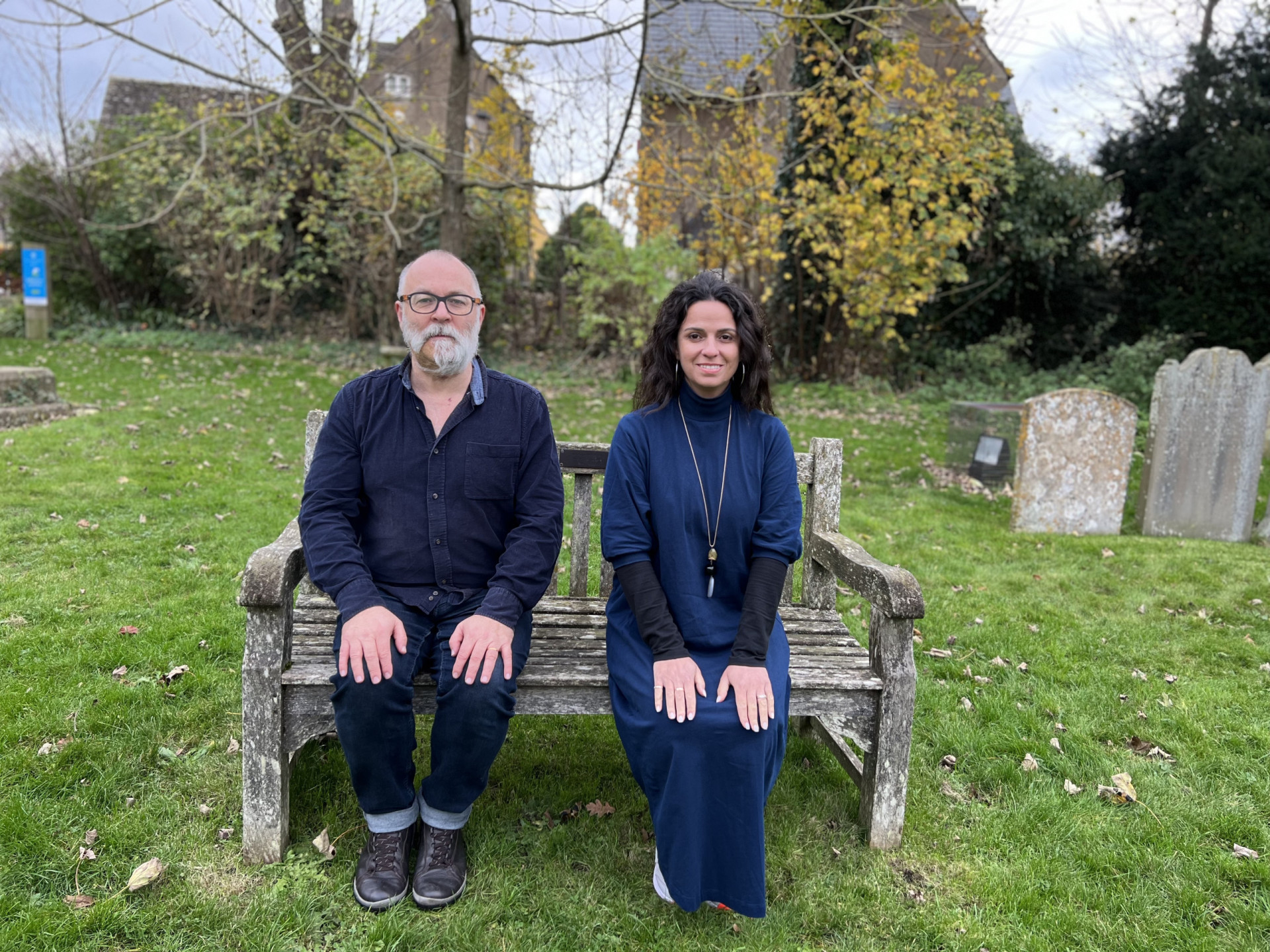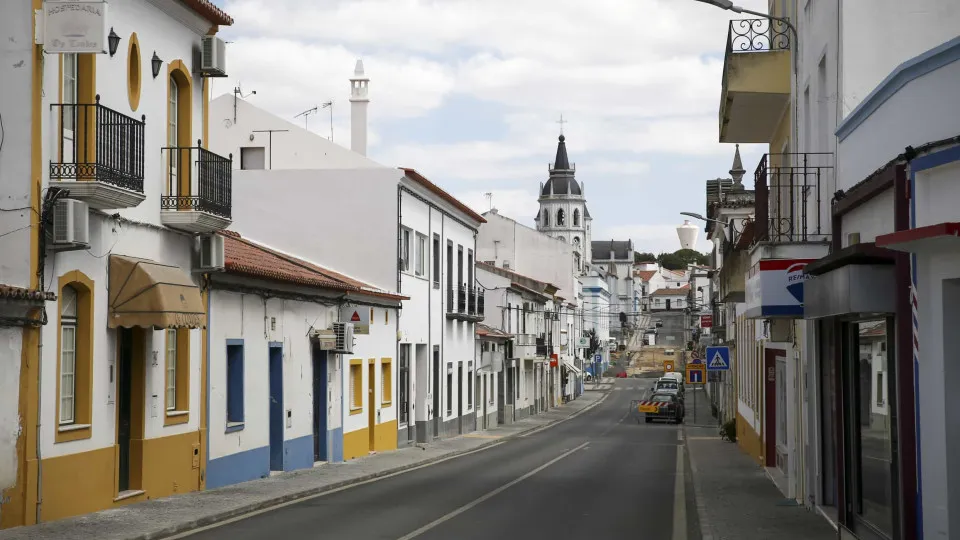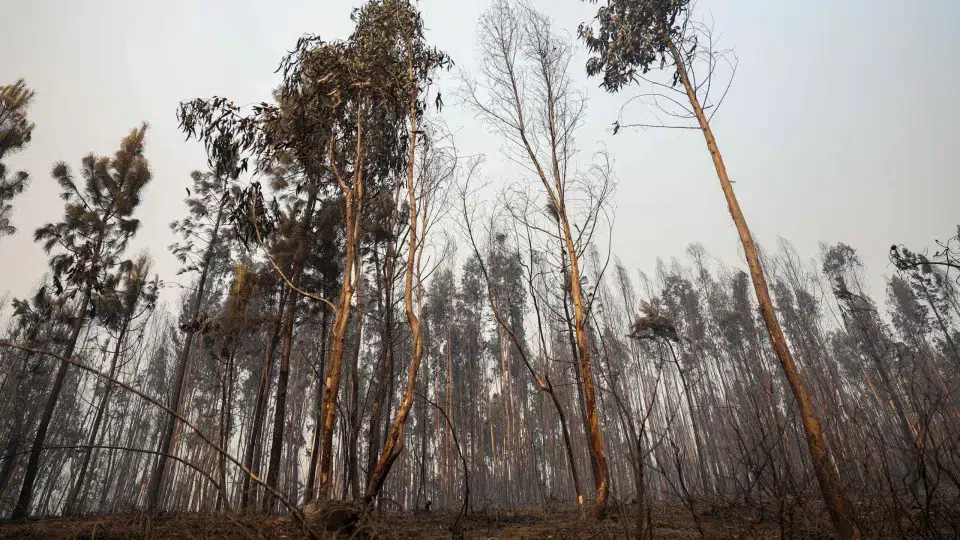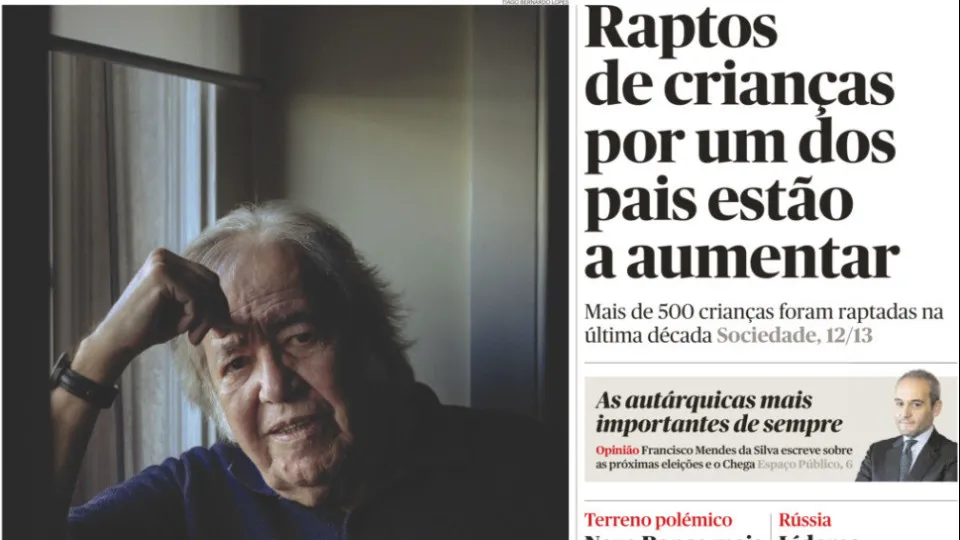In early June, fado singer LINA released the single ‘Arde Sem Se Ver’, part of her new album, ‘Terra Mãe’. As the month ends, she presents more updates. The artist has unveiled this new project, which was released on Friday, June 27, by Atlantic Curve – Schubert Music Europe.
The album will be showcased at FNAC Chiado at 6:30 PM on June 27, FNAC Colombo at 5 PM on June 28, and FNAC Norte Shopping at 5 PM on June 29.
The record features nine tracks: ‘Arde Sem Se Ver’; ‘Não Deixei de Ser Quem Sou’; ‘Terra Mãe’; ‘Entre o Ser e o Estar’; ‘Milagres’; ‘Réquiem’; ‘A Flor da Romã’; ‘Falcão na Corda Bamba’; ‘When are they coming’. It was created in collaboration with Irish composer Jules Maxwell, known for his role as composer and keyboardist for Dead Can Dance, following the 2021 release of ‘Burn’ by Lisa Gerrard and Jules Maxwell.
LINA does not seek fame, as she highlighted in a conversation with Notícias ao Minuto, but rather recognition. She noted, “abroad, I am very well received,” managing to schedule several performances. In Portugal, she’s gradually making progress. “It’s not a new thing. Unfortunately, artists are recognized abroad and only then are they recognized here, it happens a lot,” she lamented.
The collaboration among artists was another highlighted point, emphasizing the “importance of connections” between musicians.
“It would be very interesting to create a kind of artistic residency where we could create. It would be spectacular, something I would love to do, even with other fado singers, with other musicians. Create something from scratch, roots music, where we could all share ideas and knowledge. It would be great! We need to be a little more united in this sense, it’s needed.”
This new album is precisely a collaboration with another artist. Despite the distance between them, they successfully completed this project together.
During the interview, referring to the new album, the opening track ‘Arde Sem Se Ver’ was highlighted. The lyrics are an adaptation by composer Amélia Muge of the poem ‘Amor é fogo que arde sem se ver’, by Luís Vaz de Camões. It’s worth mentioning that last year, LINA introduced the ‘Fado de Camões’, an album dedicated to the works of Luís de Camões.

How did the idea for the song ‘Arde Sem Se Ver’ come about?
This song was initially called ‘Follow the Dove’. What we tried to do was translate it into Portuguese – which is quite difficult to do perfectly from English to Portuguese. Jules Maxwell had already created this song and lyrics, but in Portuguese, the meaning would not make much sense to us. Amélia Muge had the idea to adapt the poem ‘Amor é fogo que arde sem se ver’, by Luís de Camões, as there was already an interest from the previous album. I worked on the entire album surrounding Camões’ poems and fado.
An interesting adaptation emerged, exploring different areas within the poem itself, giving it new meanings, a different intensity, touching on the heartbeat and the emotions we can feel through the poem – which are more sequenced and easier to interpret. When there’s repetition, we become more sensitive to it, more dependent on the phrase itself and the emotions that arise through this repeated phrase. It’s also a way to continue honoring our poet and his 500 years. It’s the first track on the album, and for me, it made sense, having dedicated an album entirely to Camões and fado.
‘Arde Sem Se Ver’ comes after releasing ‘Não Deixei de Ser Quem Sou’ in collaboration with Jules Maxwell. But had you worked together before, or was it a first?
Jules Maxwell and Lisa Gerrard created an album called ‘Burn’, presented here in Portugal by the agency UGURU. I had the chance to attend that concert, where I met them both. ‘Terra Mãe’ is somewhat a continuation of what Jules had previously developed with Lisa Gerrard. He was very interested in traditional Portuguese music.
He is also heavily influenced by the old Irish musical style – songs sung without any instruments, a cappella, which strongly resembles fado, especially in its emotional state. This sparked Jules Maxwell’s interest in collaborating on this project, showing me his music and adapting it to new compositions and melodies based on the musical foundations he sent me. That was our collaborative effort.
Is ‘Terra Mãe’ a joint effort by both of you?
Yes, completely. Some songs already existed, while others only had a melodic base. For instance, ‘Terra Mãe’ and ‘Réquiem’ are my creations. He sent me the musical foundations, and I developed the melody and the lyrics, aligning with the theme that was being created, which was a reflection on the self. Essentially, this is the theme of the album. ‘Não Deixei de Ser Quem Sou’, ‘Milagres’, the very ‘Terra Mãe’, which reflects my roots, led me to create this song thinking about my parents’ village and my childhood. A spiritual state also characterizes this album.
‘Réquiem’ is a reflection, with a phrase in Latin that I invented, saying ‘implet animum lumine solis’ (sol ilumina a minha alma). ‘Terra Mãe’ is a cleansing of bad vibes, bringing us the necessary energy to live well, or at least in harmony.
‘Entre Ser e o Estar’ is another adaptation by Amélia Muge, which ends up being a reflection on the self. And hope, questioning what we are doing here… For example, ‘Milagres’ tells us there are no miracles; we have to make them happen. That is essentially the message of this album.
Fundamentally, ‘Terra Mãe’ also taps into the origins you sought to combine…
Exactly! The origins from both Ireland and Portugal. Not only just fado but all roots. I’m from Trás-os-Montes, and this is deeply ingrained in me – what roots mean and what it is to belong to a land, the experiences in rural settings, the natural way of living, and also, the poverty. These areas end up being very virginal. This ‘virginity’ of territory applies here to ‘Terra Mãe’ and the ancient style of Irish music – which is pure, completely without instrumentation, only voice and emotion, melancholy. The very word saudade also has this aspect in traditional Irish music. It’s not a fado album, far from it, but it is influenced.
There is no pure music. Fado itself has influences. I also don’t like labeling and shelving music. We had considerable difficulty determining the musical genre for this album.
Many artists, including fado singers, are producing works with fado influences but exploring other ‘worlds’ together. How do you view the evolution of fado in Portugal?
I feel that I significantly contributed to this new instrumentation, particularly in fado instrumentation and electronic music. In 2020, I released an album with Raül Refree, featuring traditional fados by Amália without Portuguese guitar. I then started seeing my colleagues using the exact instruments in fado afterward.
I feel happy because I believe I’ve played a role in this whole process of fado evolution. Tradition should always be preserved, as it is – guitar, viola, and voice. But evolution is crucial. We end up not forgetting our roots. We must first understand before we can transform.
I’m glad there are purists and people reinventing, creating, and receiving new influences. It’s very important. I think there is no pure music. Fado itself has influences. I also don’t like tagging and shelving music. We had considerable difficulty determining the musical genre for this album.
Nowadays, there’s a lot of blending of musical styles…
When we release an album, we must assign it a genre. For me, this has been tough due to the sharing of influences and new sounds, new textures in the music I’ve been making.
I don’t feel like a pop artist. I don’t feel like a mass-market artist. Thus, it’s challenging because large labels represent more pop, more popular artists.
Regarding Portugal, how do you view your journey in music? Has the arrival of platforms made promoting work easier, or has it introduced a different challenge?
It’s important to have the ease of releasing music and creating at home. Previously, creating music required entering a studio, which was complicated. Today, we have the means to create music. Even Billie Eilish created an entire album at home.
Having these dissemination means is vital, but it’s equally essential not to have only certain labels. For example, I don’t have a label in Portugal, so I had to find one abroad.
Not having a label here, is it by choice or due to inability to secure such a partnership?
It’s complicated. I don’t feel like a pop artist. I don’t feel like a mass-market artist. Thus, it’s challenging because large labels are more associated with pop, more popular artists.
We consume the music given to us. I have nothing against pop music, but I lean more towards the likes of Ryuichi Sakamoto, Paul Buchanan, Glen Hansard.
Do you feel the pressure for music to lean more towards a pop style, a more ‘commercial’ genre?
We end up listening to the same styles, the same rhythms, and there is so much good music we don’t know. We consume the music provided to us. If we receive other styles, another musical culture, we realize that there is much better music than what is currently consumable, which is very pop [commercial].
I have nothing against pop music, but I lean more towards Ryuichi Sakamoto, Paul Buchanan, Glen Hansard… I have a different musical taste and learned a lot with Raül Refree. He opened new ways of sensing music and understanding that the music played on the radio is not always the best. Therefore, it’s good to access these platforms where people post their creations and, now and then, search for other musical styles with which we more strongly identify. That is very important.




